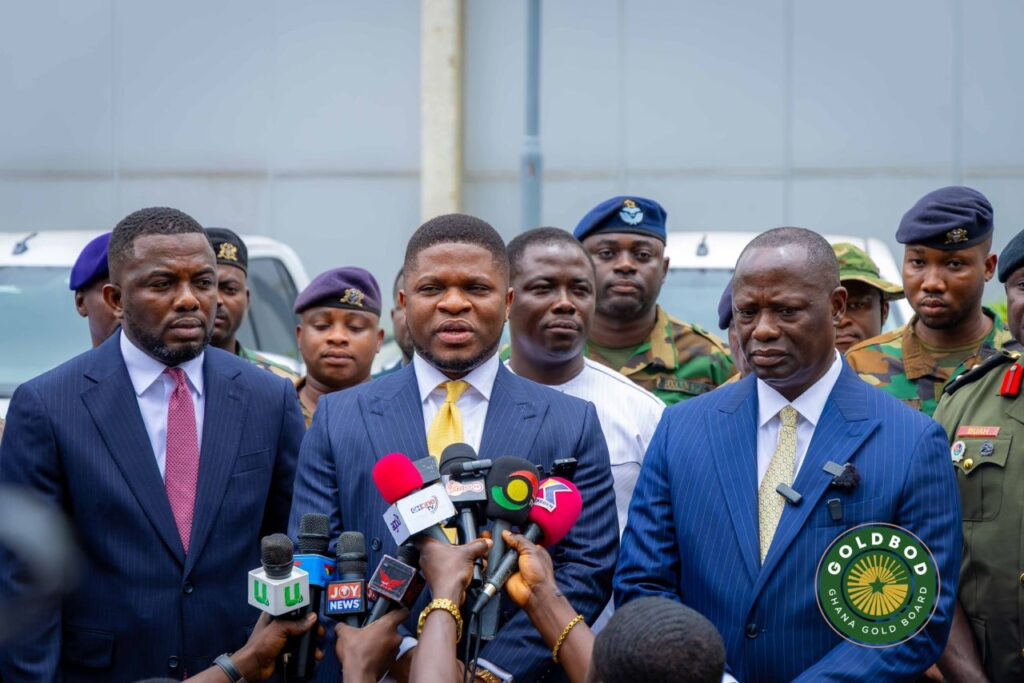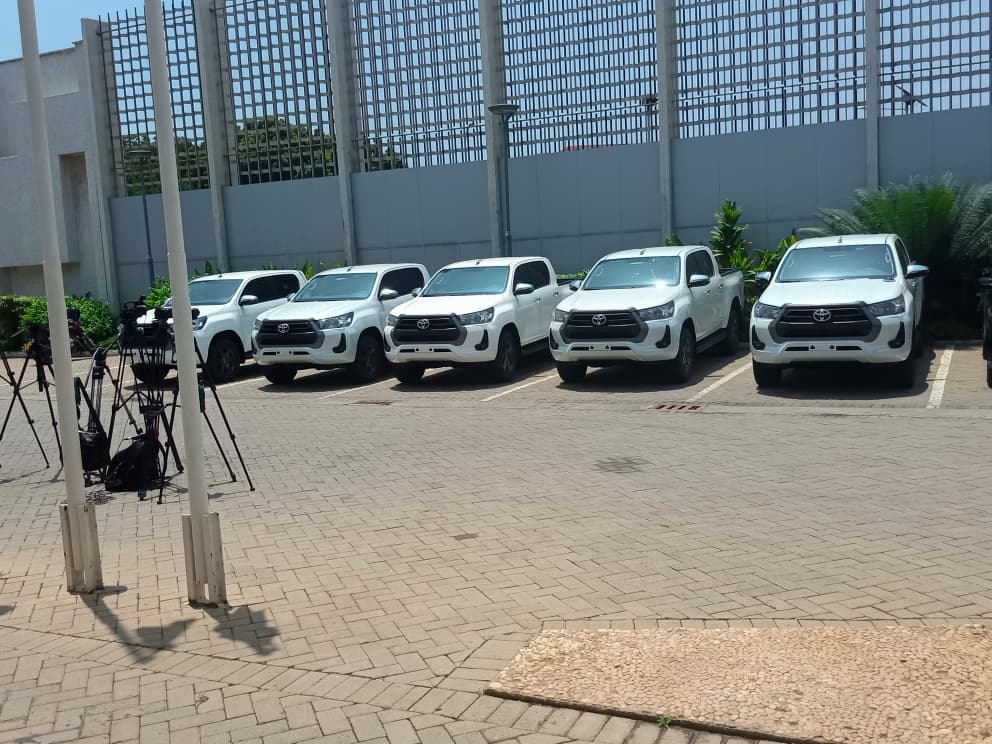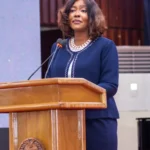The Ghana Gold Board (GoldBod) has stepped up the government’s battle against illegal mining, popularly known as “galamsey”, by handing over five Toyota Hilux pickup vehicles and GHS5 million to the National Anti-Illegal Mining Operations Secretariat (NAIMOS).
GoldBod’s CEO, Sammy Gyamfi, presented the donation during a brief ceremony in Accra on Monday, September 15, 2025, directly to Lands and Natural Resources Minister Emmanuel Armah Kofi Buah. The CEO stressed that this support underscores GoldBod’s dedication to curbing galamsey while pushing for sustainable and responsible mining across Ghana.

A Major Boost for Anti-Galamsey Efforts
Lands and Natural Resources Minister, Emmanuel Armah Kofi Buah welcomed the contribution with gratitude, calling it a timely and vital reinforcement in the ongoing war against the destructive practice of illegal small-scale mining. Galamsey has long plagued Ghana, ravaging forests, polluting water sources, and threatening the environment, but initiatives like this aim to empower enforcement agencies with better resources.
Gyamfi highlighted GoldBod’s broader role in the sector, noting that the board is focused on buying responsibly sourced gold to bolster foreign exchange earnings without harming the nation’s ecology. “We want to purchase more gold for the country’s benefit, but it must come from legal, environmentally sound operations,” he said.
GoldBod’s Commitment to Sustainable Mining
This donation aligns with GoldBod’s wider initiatives, including plans to reclaim 1,000 hectares of degraded forest reserves starting in November 2025 and partnerships for eco-friendly mining equipment. Earlier announcements from GoldBod also revealed record small-scale gold exports of $6.3 billion in the first eight months of 2025, showcasing the board’s push to formalize the industry and reduce illegal activities.
As Ghana continues its crackdown on galamsey under President John Dramani Mahama’s administration, contributions like this from state bodies signal growing momentum toward protecting the country’s natural resources and promoting ethical gold production.





